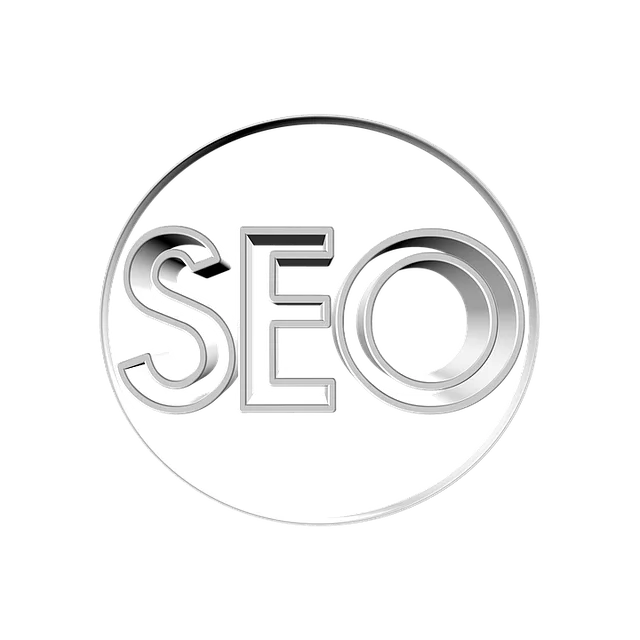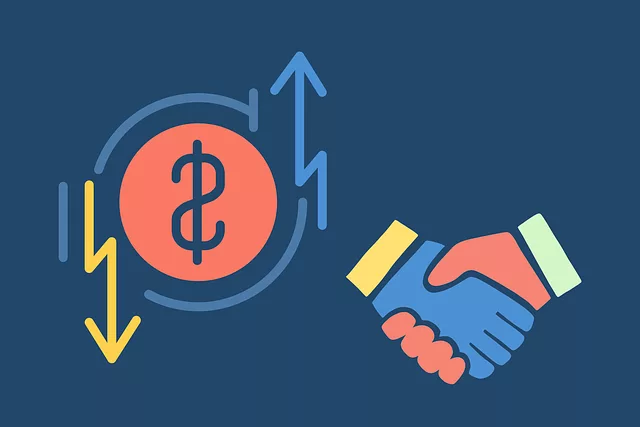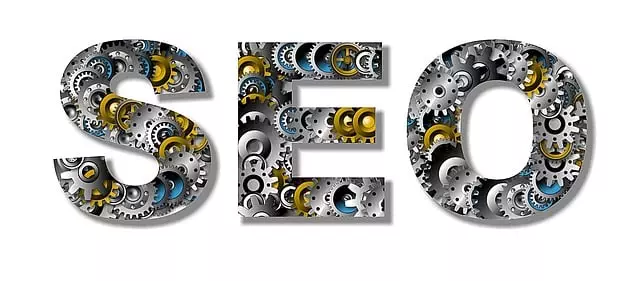In today's digital era, Technical SEO is vital for marketers to optimize websites and boost rankings. Attending SEO Agency Conferences provides access to industry experts, emerging trends, and real-world case studies. Key topics include infrastructure optimization, mobile-first indexing, structured data markup, website speed enhancement, keyword research, and on-page optimization. These conferences equip marketers with Technical SEO best practices, enabling them to stay ahead in a dynamic market and drive improved organic traffic through enhanced user experiences.
In today’s digital landscape, Technical SEO is a game-changer for marketers seeking to enhance search visibility. This comprehensive guide navigates the intricacies of Technical SEO from a marketer’s perspective, providing valuable insights into strategies that drive success. From understanding fundamental concepts to exploring advanced techniques like structured data markup and mobile-first indexing, this article equips you with the knowledge needed to excel in today’s competitive market. Moreover, learn how an SEO agency can facilitate implementation and discover common challenges faced by marketers, along with keyword research and website speed optimization tips. Discover how to measure success at industry conferences, leveraging SEO Agency expertise for optimal results.
Understanding Technical SEO: A Marketer's Perspective

In the fast-paced digital marketing landscape, Technical SEO is no longer a niche concern but a crucial aspect for marketers to master. It involves optimizing website infrastructure and code to enhance search engine visibility and user experience. For marketers, understanding Technical SEO means recognizing that behind every successful online campaign lies a well-structured, search engine-friendly website. This includes ensuring proper website indexing, implementing structured data markup, and fixing broken links—all essential elements that contribute to better rankings and increased organic traffic.
Attending an SEO Agency Conference is one effective way for marketers to stay ahead of the curve in Technical SEO. These events gather industry experts, thought leaders, and peers to discuss emerging trends, best practices, and innovative strategies. By engaging in these discussions, marketers can gain valuable insights into the latest technical advancements, learn from real-world case studies, and network with professionals who can offer guidance tailored to their specific needs.
The Role of an SEO Agency in Technical Implementation

When it comes to navigating the complex landscape of technical SEO, the role of an SEO agency is invaluable. These experts possess the knowledge and resources to implement crucial optimizations that might otherwise be overlooked by in-house marketers. During an SEO Agency Conference, for instance, industry professionals gather to share insights on cutting-edge strategies and best practices, ensuring their clients stay ahead in a constantly evolving digital market.
An SEO agency plays a pivotal role in identifying and fixing technical issues that can hinder search engine visibility. They employ sophisticated tools to conduct thorough audits, pinpointing problems like broken links, slow page load times, and mobile usability concerns. By addressing these issues, they enhance the overall user experience, which is not only beneficial for search engine rankings but also fosters a loyal customer base.
Common Technical SEO Challenges Faced by Marketers

Marketers often encounter several technical SEO challenges, especially as digital landscapes evolve rapidly. One common hurdle is staying updated with algorithm changes, as search engines like Google consistently tweak their ranking factors. These updates can significantly impact a website’s visibility and performance, requiring marketers to adapt quickly. For instance, at the recent SEO Agency Conference, experts discussed how recent algorithm changes favor content that provides a better user experience, emphasizing mobile-friendliness and page loading speeds.
Another challenge is managing complex websites with numerous pages and dynamic content. As sites grow, ensuring proper sitemaps, URL structures, and schema markup becomes more intricate. Marketers must also navigate issues related to crawlability, where search engine bots struggle to access and index website content effectively. At the conference, speakers highlighted the importance of regular site audits and leveraging SEO tools to identify and rectify these technical problems, ultimately enhancing a website’s search engine rankings.
Keyword Research and On-Page Optimization Strategies

Keyword research is a fundamental aspect of Technical SEO, and it’s where the foundation for successful on-page optimization begins. Marketers attending an SEO Agency Conference would be introduced to cutting-edge tools and methodologies for uncovering valuable keywords that drive organic traffic. This involves analyzing search volume, competition, and user intent to identify terms with high potential for ranking and conversions. By understanding how potential customers are searching for products or services, marketers can tailor content strategies to match these queries precisely.
On-page optimization leverages the power of keywords to enhance website visibility. It entails optimizing title tags, meta descriptions, header tags, and content to naturally include target keywords while maintaining readability and relevance. An SEO Agency Conference would highlight best practices for implementing these strategies effectively. For instance, using keyword research insights to create compelling titles and descriptions that not only attract clicks but also encourage higher time spent on pages, thereby signaling search engines of the website’s authority and user engagement.
Mobile-First Indexing: Adapting Your Content Strategy

With the rise of mobile internet usage, search engines like Google have implemented Mobile-First Indexing (MFI), meaning they prioritize indexing and ranking mobile versions of websites over desktop counterparts. This shift demands that marketers and SEO agencies attending industry conferences stay ahead of the curve by adapting their content strategies. Optimizing for mobile users involves ensuring your website’s design is responsive, content is easily consumable on smaller screens, and crucial information isn’t buried beneath excessive desktop-focused elements.
At SEO Agency Conferences, experts often emphasize the importance of creating a seamless user experience across all devices. This includes optimizing images, utilizing faster loading times, and structuring content in a way that’s intuitive for mobile users. By embracing these changes, marketers can enhance their search engine rankings, drive more organic traffic, and ultimately deliver better results to their clients—a key focus for any forward-thinking SEO agency.
Structured Data Markup for Enhanced Search Visibility

Structured Data Markup (SDM) is a powerful tool that helps search engines understand and interpret your website’s content more effectively. By providing clear, structured data, you can enhance the visibility and performance of your pages in search results. This is especially important for marketers to consider during their SEO strategy at an SEO Agency Conference, where cutting-edge techniques are often discussed.
Implementing SDM allows you to add specific details about entities like products, events, or reviews directly into your webpage’s code. This structured data enables search engines to display rich snippets in the search results, providing users with more valuable and relevant information at a glance. As a result, your website becomes more noticeable, increasing the likelihood of attracting interested visitors and ultimately improving conversion rates.
Website Speed Optimization: Improving User Experience

Website speed optimization is a crucial aspect of Technical SEO that often gets overlooked, yet it significantly impacts user experience and search engine rankings. In today’s fast-paced digital world, quick loading websites are expected, and anything less can lead to higher bounce rates and decreased engagement. Marketers should collaborate with their SEO agency to ensure optimal site speed during every phase of development and maintenance. Implementing strategies such as leveraging browser caching, optimizing image sizes, minimizing HTTP requests, and using content delivery networks (CDNs) can drastically improve page load times.
During an SEO Agency Conference, discussions on website speed optimization often revolve around the importance of keeping up with the latest tools and technologies. As search engines like Google use site speed as a ranking factor, faster websites are more likely to rank higher in search results, attracting organic traffic. Moreover, improved user experience due to quicker load times can lead to better conversion rates, making it a vital component of any digital marketing strategy.
Measuring and Analyzing Technical SEO Success at Conferences

When attending an SEO Agency Conference, marketers can gain valuable insights into their technical SEO efforts by measuring and analyzing key performance indicators (KPIs). These metrics provide a clear picture of the success of implemented strategies. For instance, tracking website speed improvements, reduced bounce rates, and increased time spent on-site are direct indicators of successful technical optimizations. Such conferences often feature presentations and workshops dedicated to these topics, offering practical tips for enhancing site architecture, improving mobile usability, and fixing broken links—all vital aspects of technical SEO.
Moreover, networking opportunities at these events allow marketers to exchange experiences and learn from industry experts. Discussing case studies and sharing success stories can shed light on what works best in terms of technical SEO implementations. By combining data-driven insights with real-world examples, attendees can identify areas for improvement and stay updated on the latest trends and tools, ensuring their SEO strategies remain effective and relevant in a dynamic digital landscape.



